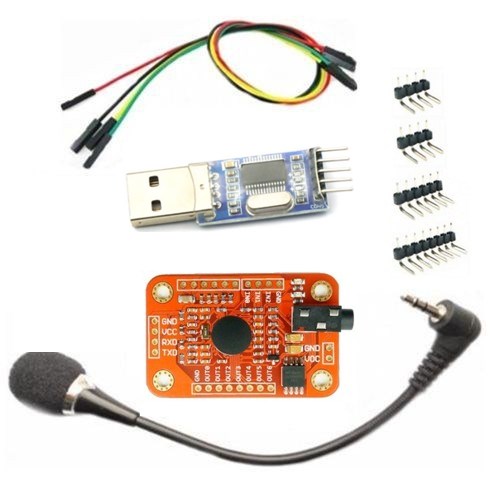Не проблема , я ардуиной прошивал контроллеры Atmega, нужно только в конфигурации указывать тип контроллера, за это отвечает ключ -p
Показано с 11 по 20 из 60
Тема: Программатор из Arduino
-
25.10.2009, 19:52 #11
 Re: Программатор из Arduino
Re: Программатор из Arduino
Последний раз редактировалось Chip; 25.10.2009 в 19:54.
-
30.12.2009, 12:25 #12
-
30.12.2009, 12:58 #13Пользователь


- Регистрация
- 11.11.2008
- Возраст
- 43
- Сообщений
- 59
- Вес репутации
- 201
 Re: Программатор из Arduino
Re: Программатор из Arduino
есть. он идет в комплекте с прогой Arduinio IDE и лежит в папке arduino-0017\hardware\bootloaders\atmega8
Последний раз редактировалось KotKin; 30.12.2009 в 12:59.
-
30.12.2009, 17:18 #14
-
02.02.2010, 23:20 #15Новичок


- Регистрация
- 26.10.2009
- Сообщений
- 18
- Вес репутации
- 182
 Re: Программатор из Arduino
Re: Программатор из Arduino
а как мне прошить Attiny 2313?
-
03.02.2010, 03:20 #16
 Re: Программатор из Arduino
Re: Программатор из Arduino
Вот здесь посмотри
И еще один вариант
PHP код:// this sketch turns the Arduino into a AVRISP
// using the following pins:
// 10: slave reset
// 11: MOSI
// 12: MISO
// 13: SCK
// Put an LED (with resistor) on the following pins:
// 9: Heartbeat - shows the programmer is running
// 8: Error - Lights up if something goes wrong (use red if that makes sense)
// 7: Programming - In communication with the slave
//
// February 2009 by Randall Bohn
// - Added support for writing to EEPROM (what took so long?)
// Windows users should consider WinAVR's avrdude instead of the
// avrdude included with Arduino software.
//
// January 2008 by Randall Bohn
// - Thanks to Amplificar for helping me with the STK500 protocol
// - The AVRISP/STK500 (mk I) protocol is used in the arduino bootloader
// - The SPI functions herein were developed for the AVR910_ARD programmer
// - More information at http://code.google.com/p/mega-isp
#define SCK 13
#define MISO 12
#define MOSI 11
#define RESET 10
#define LED_HB 9
#define LED_ERR 8
#define LED_PMODE 7
#define HWVER 2
#define SWMAJ 1
#define SWMIN 18
// STK Definitions
#define STK_OK 0x10
#define STK_FAILED 0x11
#define STK_UNKNOWN 0x12
#define STK_INSYNC 0x14
#define STK_NOSYNC 0x15
#define CRC_EOP 0x20 //ok it is a space...
void pulse(int pin, int times);
void setup() {
// 19200?
Serial.begin(19200);
pinMode(7, OUTPUT);
pulse(7, 2);
pinMode(8, OUTPUT);
pulse(8, 2);
pinMode(9, OUTPUT);
pulse(9, 2);
}
int error=0;
int pmode=0;
// address for reading and writing, set by 'U' command
int here;
uint8_t buff[256]; // global block storage
#define beget16(addr) (*addr * 256 + *(addr+1) )
typedef struct param {
uint8_t devicecode;
uint8_t revision;
uint8_t progtype;
uint8_t parmode;
uint8_t polling;
uint8_t selftimed;
uint8_t lockbytes;
uint8_t fusebytes;
int flashpoll;
int eeprompoll;
int pagesize;
int eepromsize;
int flashsize;
}
parameter;
parameter param;
// this provides a heartbeat on pin 9, so you can tell the software is running.
uint8_t hbval=128;
int8_t hbdelta=8;
void heartbeat() {
if (hbval > 192) hbdelta = -hbdelta;
if (hbval < 32) hbdelta = -hbdelta;
hbval += hbdelta;
analogWrite(LED_HB, hbval);
delay(40);
}
void loop(void) {
// is pmode active?
if (pmode) digitalWrite(LED_PMODE, HIGH);
else digitalWrite(LED_PMODE, LOW);
// is there an error?
if (error) digitalWrite(LED_ERR, HIGH);
else digitalWrite(LED_ERR, LOW);
// light the heartbeat LED
heartbeat();
if (Serial.available()) {
avrisp();
}
}
uint8_t getch() {
while(!Serial.available());
return Serial.read();
}
void readbytes(int n) {
for (int x = 0; x < n; x++) {
buff[x] = Serial.read();
}
}
#define PTIME 30
void pulse(int pin, int times) {
do {
digitalWrite(pin, HIGH);
delay(PTIME);
digitalWrite(pin, LOW);
delay(PTIME);
}
while (times--);
}
void spi_init() {
uint8_t x;
SPCR = 0x53;
x=SPSR;
x=SPDR;
}
void spi_wait() {
do {
}
while (!(SPSR & (1 << SPIF)));
}
uint8_t spi_send(uint8_t b) {
uint8_t reply;
SPDR=b;
spi_wait();
reply = SPDR;
return reply;
}
uint8_t spi_transaction(uint8_t a, uint8_t b, uint8_t c, uint8_t d) {
uint8_t n;
spi_send(a);
n=spi_send(b);
//if (n != a) error = -1;
n=spi_send(c);
return spi_send(d);
}
void empty_reply() {
if (CRC_EOP == getch()) {
Serial.print((char)STK_INSYNC);
Serial.print((char)STK_OK);
}
else {
Serial.print((char)STK_NOSYNC);
}
}
void breply(uint8_t b) {
if (CRC_EOP == getch()) {
Serial.print((char)STK_INSYNC);
Serial.print((char)b);
Serial.print((char)STK_OK);
}
else {
Serial.print((char)STK_NOSYNC);
}
}
void get_version(uint8_t c) {
switch(c) {
case 0x80:
breply(HWVER);
break;
case 0x81:
breply(SWMAJ);
break;
case 0x82:
breply(SWMIN);
break;
case 0x93:
breply('S'); // serial programmer
break;
default:
breply(0);
}
}
void set_parameters() {
// call this after reading paramter packet into buff[]
param.devicecode = buff[0];
param.revision = buff[1];
param.progtype = buff[2];
param.parmode = buff[3];
param.polling = buff[4];
param.selftimed = buff[5];
param.lockbytes = buff[6];
param.fusebytes = buff[7];
param.flashpoll = buff[8];
// ignore buff[9] (= buff[8])
//getch(); // discard second value
// WARNING: not sure about the byte order of the following
// following are 16 bits (big endian)
param.eeprompoll = beget16(&buff[10]);
param.pagesize = beget16(&buff[12]);
param.eepromsize = beget16(&buff[14]);
// 32 bits flashsize (big endian)
param.flashsize = buff[16] * 0x01000000
+ buff[17] * 0x00010000
+ buff[18] * 0x00000100
+ buff[19];
}
void start_pmode() {
spi_init();
// following delays may not work on all targets...
pinMode(RESET, OUTPUT);
digitalWrite(RESET, HIGH);
pinMode(SCK, OUTPUT);
digitalWrite(SCK, LOW);
delay(50);
digitalWrite(RESET, LOW);
delay(50);
pinMode(MISO, INPUT);
pinMode(MOSI, OUTPUT);
spi_transaction(0xAC, 0x53, 0x00, 0x00);
pmode = 1;
}
void end_pmode() {
pinMode(MISO, INPUT);
pinMode(MOSI, INPUT);
pinMode(SCK, INPUT);
pinMode(RESET, INPUT);
pmode = 0;
}
void universal() {
int w;
uint8_t ch;
for (w = 0; w < 4; w++) {
buff[w] = getch();
}
ch = spi_transaction(buff[0], buff[1], buff[2], buff[3]);
breply(ch);
}
void flash(uint8_t hilo, int addr, uint8_t data) {
spi_transaction(0x40+8*hilo,
addr>>8 & 0xFF,
addr & 0xFF,
data);
}
void commit(int addr) {
spi_transaction(0x4C, (addr >> 8) & 0xFF, addr & 0xFF, 0);
}
//#define _current_page(x) (here & 0xFFFFE0)
int current_page(int addr) {
if (param.pagesize == 32) return here & 0xFFFFFFF0;
if (param.pagesize == 64) return here & 0xFFFFFFE0;
if (param.pagesize == 128) return here & 0xFFFFFFC0;
if (param.pagesize == 256) return here & 0xFFFFFF80;
return here;
}
uint8_t write_flash(int length) {
if (param.pagesize < 1) return STK_FAILED;
//if (param.pagesize != 64) return STK_FAILED;
int page = current_page(here);
int x = 0;
while (x < length) {
if (page != current_page(here)) {
commit(page);
page = current_page(here);
}
flash(LOW, here, buff[x++]);
flash(HIGH, here, buff[x++]);
here++;
}
commit(page);
return STK_OK;
}
uint8_t write_eeprom(int length) {
// here is a word address, so we use here*2
// this writes byte-by-byte,
// page writing may be faster (4 bytes at a time)
for (int x = 0; x < length; x++) {
spi_transaction(0xC0, 0x00, here*2+x, buff[x]);
delay(45);
}
return STK_OK;
}
void program_page() {
char result = (char) STK_FAILED;
int length = 256 * getch() + getch();
if (length > 256) {
Serial.print((char) STK_FAILED);
return;
}
char memtype = getch();
for (int x = 0; x < length; x++) {
buff[x] = getch();
}
if (CRC_EOP == getch()) {
Serial.print((char) STK_INSYNC);
if (memtype == 'F') result = (char)write_flash(length);
if (memtype == 'E') result = (char)write_eeprom(length);
Serial.print(result);
}
else {
Serial.print((char) STK_NOSYNC);
}
}
uint8_t flash_read(uint8_t hilo, int addr) {
return spi_transaction(0x20 + hilo * 8,
(addr >> 8) & 0xFF,
addr & 0xFF,
0);
}
char flash_read_page(int length) {
for (int x = 0; x < length; x+=2) {
uint8_t low = flash_read(LOW, here);
Serial.print((char) low);
uint8_t high = flash_read(HIGH, here);
Serial.print((char) high);
here++;
}
return STK_OK;
}
char eeprom_read_page(int length) {
// here again we have a word address
for (int x = 0; x < length; x++) {
uint8_t ee = spi_transaction(0xA0, 0x00, here*2+x, 0xFF);
Serial.print((char) ee);
}
return STK_OK;
}
void read_page() {
char result = (char)STK_FAILED;
int length = 256 * getch() + getch();
char memtype = getch();
if (CRC_EOP != getch()) {
Serial.print((char) STK_NOSYNC);
return;
}
Serial.print((char) STK_INSYNC);
if (memtype == 'F') result = flash_read_page(length);
if (memtype == 'E') result = eeprom_read_page(length);
Serial.print(result);
return;
}
//////////////////////////////////////////
//////////////////////////////////////////
////////////////////////////////////
////////////////////////////////////
int avrisp() {
uint8_t data, low, high;
uint8_t ch = getch();
switch (ch) {
case '0': // signon
empty_reply();
break;
case '1':
if (getch() == CRC_EOP) {
Serial.print((char) STK_INSYNC);
Serial.print("AVR ISP");
Serial.print((char) STK_OK);
}
break;
case 'A':
get_version(getch());
break;
case 'B':
readbytes(20);
set_parameters();
empty_reply();
break;
case 'E': // extended parameters - ignore for now
readbytes(5);
empty_reply();
break;
case 'P':
start_pmode();
empty_reply();
break;
case 'U':
here = getch() + 256 * getch();
empty_reply();
break;
case 0x60: //STK_PROG_FLASH
low = getch();
high = getch();
empty_reply();
break;
case 0x61: //STK_PROG_DATA
data = getch();
empty_reply();
break;
case 0x64: //STK_PROG_PAGE
program_page();
break;
case 0x74: //STK_READ_PAGE
read_page();
break;
case 'V':
universal();
break;
case 'Q':
error=0;
end_pmode();
empty_reply();
break;
// expecting a command, not CRC_EOP
// this is how we can get back in sync
case CRC_EOP:
Serial.print((char) STK_NOSYNC);
break;
// anything else we will return STK_UNKNOWN
default:
if (CRC_EOP == getch())
Serial.print((char)STK_UNKNOWN);
else
Serial.print((char)STK_NOSYNC);
}
}
Последний раз редактировалось Chip; 03.02.2010 в 03:24.
-
14.06.2010, 20:28 #17Пользователь


- Регистрация
- 24.02.2010
- Возраст
- 47
- Сообщений
- 47
- Вес репутации
- 184
 Re: Программатор из Arduino
Re: Программатор из Arduino
Помогите победить Arduino ATMega2560 (такая вот: http://emartee.com/product/41884/Ard...ega-ATmega2560)

Скоммутировал X3 и ICSP как описано в первом посте. Скачал avrdude. Попробовал прошить такой командой:
получил:avrdude.exe -p m2560 -U flash:w:ATmegaBOOT_168_mega2560.hex -c diecimila -P ft0
Соответственно перепроверил соединения - ошибки быть не может. Также пробовал прошить через оболочку Arduino (версия 0018) - нет пункта меню Tools > Burn Bootloader > w/ FTDI Bitbang (метод описан здесь: http://www.geocities.jp/arduino_diec..._w_ide_en.html)> avrdude.exe -p m2560 -U flash:w:ATmegaBOOT_168_mega2560.hex -c diecimila -P ft0
avrdude.exe: BitBang OK
avrdude.exe: pin assign miso 3 sck 5 mosi 6 reset 7
avrdude.exe: drain OK
ft245r: bitclk 230400 -> ft baud 115200
avrdude.exe: ft245r_program_enable: failed
avrdude.exe: initialization failed, rc=-1
Double check connections and try again, or use -F to override
this check.
avrdude.exe done. Thank you.
Как быть? Найти плату-прошивальщик, другую ардуину или спаять программатор самому не представляется возможным - познания в построении устройств заканчиваются на знаниях "что куда подключить", да и то по руководству. Я программист. Спасите-помогите, пытливый ум хочет чего-нить сотворить....
Спасибо!
-
14.06.2010, 20:34 #18
 Re: Программатор из Arduino
Re: Программатор из Arduino
Попробуй так:
avrdude -F -e -C avrdude.conf -c diecimila -P ft0 -p m2560 -B 4800 -U flash:w:ATmegaBOOT_168_mega2560.hexПоследний раз редактировалось Chip; 14.06.2010 в 20:43.
-
14.06.2010, 21:01 #19Пользователь


- Регистрация
- 24.02.2010
- Возраст
- 47
- Сообщений
- 47
- Вес репутации
- 184
 Re: Программатор из Arduino
Re: Программатор из Arduino
Попробовал, вот:
Судя по всему проверка не прошлаavrdude.EXE: Device signature = 0xffffff
avrdude.EXE: Yikes! Invalid device signature.
avrdude.EXE: Expected signature for ATMEGA2560 is 1E 98 01
avrdude.EXE: erasing chip
ft245r: bitclk 230400 -> ft baud 115200
avrdude.EXE: ft245r_program_enable: failed
avrdude.EXE: reading input file "ATmegaBOOT_168_mega2560.hex"
avrdude.EXE: input file ATmegaBOOT_168_mega2560.hex auto detected as Intel Hex
avrdude.EXE: writing flash (256444 bytes):
Writing | ################################################## | 100% 97.30s
avrdude.EXE: 256444 bytes of flash written
avrdude.EXE: verifying flash memory against ATmegaBOOT_168_mega2560.hex:
avrdude.EXE: load data flash data from input file ATmegaBOOT_168_mega2560.hex:
avrdude.EXE: input file ATmegaBOOT_168_mega2560.hex auto detected as Intel Hex
avrdude.EXE: input file ATmegaBOOT_168_mega2560.hex contains 256444 bytes
avrdude.EXE: reading on-chip flash data:
Reading | ################################################## | 100% 44.81s
avrdude.EXE: verifying ...
avrdude.EXE: verification error, first mismatch at byte 0x3e000
0x0d != 0xff
avrdude.EXE: verification error; content mismatch
avrdude.EXE: safemode: Fuses OK
avrdude.EXE done. Thank you.
-
14.06.2010, 21:05 #20
 Re: Программатор из Arduino
Re: Программатор из Arduino
Нужно биты конфигурации устанавливать, к сожалению на ATMEGA2560 я не конфигурировал, так что не подскажу
Информация о теме
Пользователи, просматривающие эту тему
Эту тему просматривают: 1 (пользователей: 0 , гостей: 1)





 Ответить с цитированием
Ответить с цитированием

